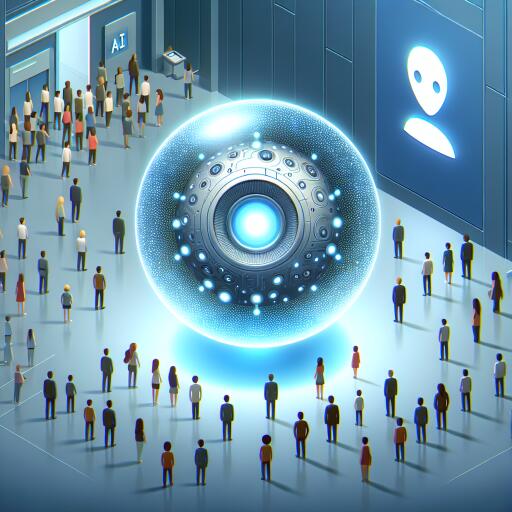Unveiling the Largest Open AI Model by Meta: A Milestone in Artificial Intelligence
In the rapidly evolving arena of artificial intelligence (AI), a pivotal battle for transparency and accessibility is unfolding. Leading the charge towards open-source AI, Meta has introduced a breakthrough with the release of its large AI models, notably the Llama 3.1 405B. This move by Meta, spearheaded by founder Mark Zuckerberg, positions the tech giant at the forefront of advocating for open-source AI, a crucial step towards democratizing AI technology for global benefit.
At the heart of the debate between open- and closed-source AI models lies the balance between proprietary confidentiality and the public’s right to transparency. Closed-source models, such as those developed by OpenAI, Google, and Anthropic, operate under a veil of secrecy regarding their datasets, algorithms, and development processes. While this approach safeguards intellectual property and profits, it raises concerns regarding trust, accountability, and the monopolization of AI advancements.
Meta’s launch of Llama 3.1 405B, described as the “first frontier-level open source AI model,” presents an alternative vision. This gesture towards openness challenges the status quo, offering a model that, while formidable in size and capabilities, invites scrutiny, collaboration, and innovation across the board.
The Significance of Open-Source AI
The open-source approach in AI development is more than a technical preference—it’s a commitment to ethical principles, including fairness, accountability, transparency, and inclusivity. By making AI models like Llama 3.1 405B accessible, Meta enables a broader spectrum of developers, researchers, and organizations to engage with, improve upon, and ethically steer AI’s future trajectory.
However, the journey towards truly open-source AI is not without challenges. Open-source models must navigate the delicate balance between encouraging innovation and protecting against misuse. Issues of quality control, security vulnerabilities, and the potential for biases within the models necessitate a community-driven approach to development and oversight.
A Pioneer in Open-Source AI
Meta’s commitment to open-source AI democratizes access to cutting-edge technology, allowing even small entities to partake in the AI revolution without the prohibitive costs of developing or training large models from scratch. While Llama 3.1 405B is celebrated for its performance in various language and reasoning tasks, Meta’s decision not to release the model’s training dataset underlines the ongoing struggle between openness and the need to protect certain aspects of AI development.
Thus, Meta’s move is a significant, albeit partial, stride towards open-source AI. It symbolizes a shift in the tech landscape, propelling academic institutions, small businesses, and individual developers into a new era of AI innovation.
Navigating the Future of AI
For AI to be genuinely democratized, we must advocate for and implement policies that ensure governance, accessibility, and openness in AI. This entails a collective effort among governments, industries, academia, and citizens to foster an environment where AI technologies are developed and used responsibly and where the fruits of these advancements are accessible to all.
Questions about intellectual property rights, ethical dilemmas, and potential abuse loom large in the discourse around open-source AI. Striking a balance between fostering innovation and preventing misuse is paramount to realizing an AI-powered future that benefits humanity at large.
The landscape of AI development is at a critical juncture. Meta’s launch of the Llama 3.1 405B model serves as both a milestone and a challenge to the global tech community. Will we advance towards a future where AI is an empowering tool for all, or will we allow it to become a source of division and control? The trajectory of AI’s evolution—and its impacts on society—rests in our collective hands.
As we stand on the cusp of this technological revolution, the actions we take today will shape the AI landscape for generations to come. The commitment to open-source AI paves the way for a more inclusive, transparent, and collaborative future—one where the potential of artificial intelligence can be fully realized for the betterment of humanity.










